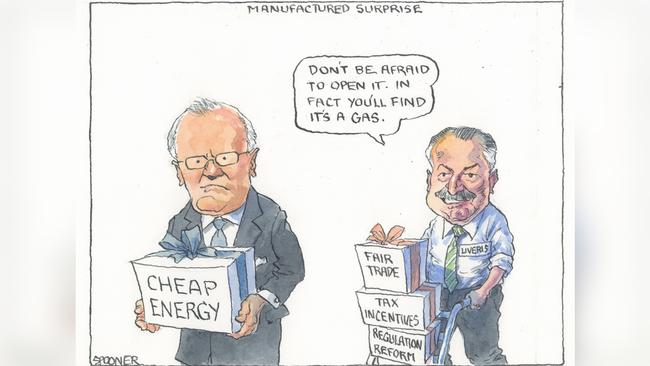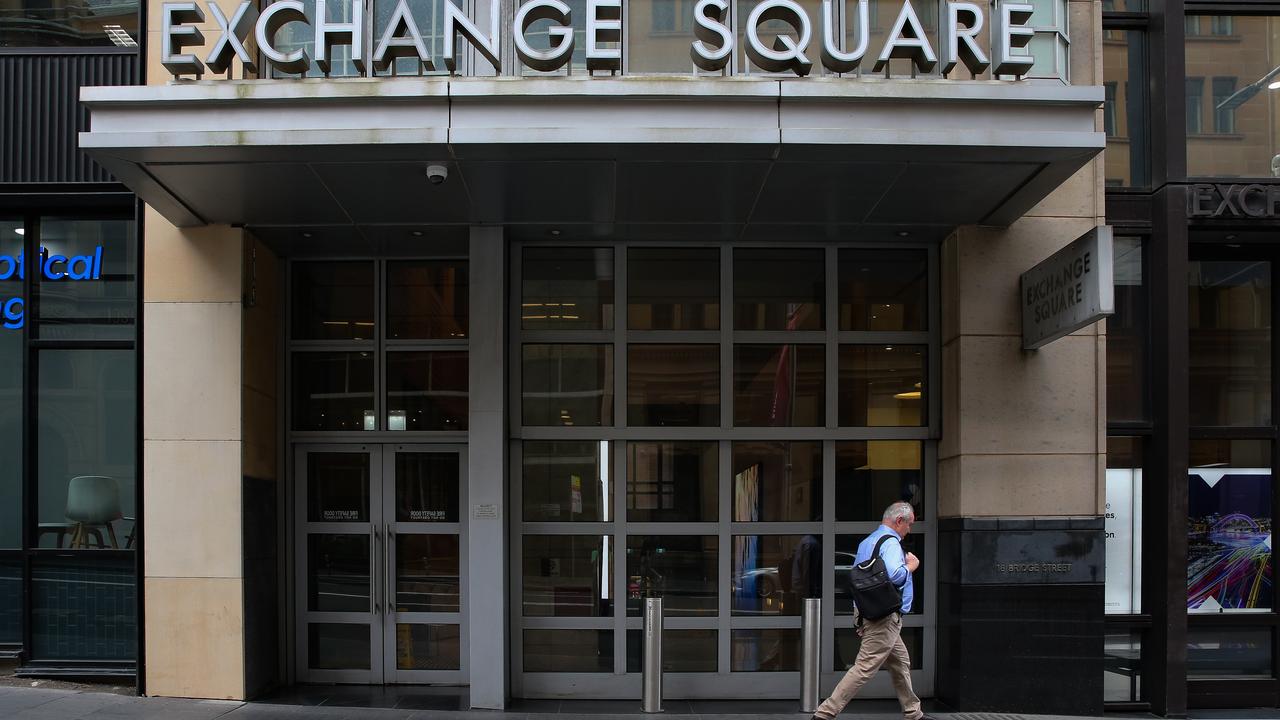
Manufacturing tsar Andrew Liveris rightly bangs the drum about government and industry co-ordinating manufacturing policy better, which hopefully will see wholesale changes to government plans on research and development.
R&D is like motherhood — something everyone wants to support — but in this case it’s not being done correctly.
While the policy is undergoing yet another review, now would be a good time for the federal government to actually start a debate on policies that can create jobs.
It has had the Liveris report on manufacturing industry for a few weeks now. Parts of it are already leaked and the relevant ministers have people looking at it, so why not place the full report on the table to focus on job creation rather than the Victorian lockdown.
That way debate could focus on the facts to help the government set the policy.
Liveris believes the basics for a manufacturing revival already exist in Australia — it’s just a matter of bringing jobs back home and co-ordinating them better to maximise the value.
This, too, is a concept in place already through government bodies like the Australian Research Council’s Industrial Transformation Research hubs.
These co-ordinate research centres, matching bodies like Swinburne’s 3D printing facilities with the CSIRO, and Deakin University’s work on material fibres with the conversion of them into high value-added products.
WA Senator Slade Brockman’s Senate economics committee is looking at the proposals and is due to report towards the end of this month.
Patrick Houlihan at Dulux is critical of proposals to reward R&D intensity, which is measured by spending as a percentage of costs.
In his case it costs around $1.4bn a year to turn on the lights at his manufacturing facilities.
This means if he spends $200m a year on R&D the intensity will be less than a foreign-based company with just an R&D lab in this country and all the costs elsewhere.
It makes little sense to be throwing taxpayer support to an offshore-based company which is doing its heavy lifting somewhere else.
The aim of the game is to create a more resilient industrial base that employs more people in Australia.
Nippon Paint-owned Dulux is based in Melbourne and produces a million litres of decorative paint each week from its plant for the rest of the country.
Thankfully it was spared the Victorian government axe.
R&D incentives have suffered in recent years by constant tinkering as governments try to save money or do things differently, and hopefully in this climate the new policy will be solid and make sense.
Liveris is quoted often on the need for cheaper gas prices but also sees the final leg of the energy equation being some form of carbon price mechanism.
Most companies already make decisions based on internal prices. The only people to wake up are those sitting on the government benches in Canberra.
His chosen sectors are now well-known, including food and agtech, healthcare, biotech, critical minerals, energy and advanced building materials.
Onshoring is already happening post-COVID but is another theme.
The message from there is to aggregate centres of excellence and hold them accountable. Procurement policy will also be an important lever, so building the new Tasmanian ferries in Australia means engineering, software and advanced materials technology benefit.
The endgame is to make things other people want, building on the success of the likes of CSL and Cochlear.
Recycling revolution
The Melbourne lockdown hasn’t slowed Pact’s Sanjay Dayal, who has announced confirmation of the $45m joint centre to build a PET recycling centre just north of the border, together with Asahi and Cleanaway.
The company is committed to spending $500m in the next five years on the circular economy, with other investments including a $40m HDPE plant at Laverton on the outskirts of Melbourne and a $65m upgrade to use more recycled materials in the company’s wheelie bins, milk bottles and other hard plastic bottles.
Another $14m is being invested in an R&D centre focusing on recycled content in packaging.
In all the investments the company will be looking for partners to cover both the collection of material and the use of the recycled products.
The wheelie bins now are 40 per cent recycled, but this will double to 80 per cent.
Pact was an early winner from COVID, with sanitiser sales increasing from 300 litres a year to one million a week, but with the country now awash in sanitiser it has expanded the range under the Stay Safe brand, which includes different forms of sanitiser, antibacterial spray and cleaners.
Gillam chairs Nufarm
During the lockdown Nufarm has quietly changed guard, with CSR chair John Gillam taking over as chair, replacing veteran Donald McGauchie.
McGauchie had served as chair for 10 years and 17 as a director for the company.
He remains chair of AACo and on the board of GrainCorp.
As an aside, McGauchie, who lives in country Victoria, has been to just two physical board meetings since March, due to COVID-19.
The pandemic has fast-forwarded the digital transformation but many in corporate Australia would argue a bigger mix of physical meetings would help.
Same deal for big head office staff, where most of those who have served a while want the flexibility of working from home to continue but acknowledge the return to the office a few days a week would be a good thing.
If offices are to be spaced more widely with less people on each floor, the question is whether CBD rents will fall.
Gillam is best known as the former Bunnings boss but before his 12-year stint at the retailer served as head of Wesfarmers CSBP unit, so he is back in agricultural chemicals.
Gregson appointed
The ACCC has, as tipped, selected veteran insider Scott Gregson as the new chief operating officer, replacing Rayne de Gruchy.
Gregson, who lives just outside Canberra, first joined the ACCC as a graduate back in 1996 and apart from a stint elsewhere in public service has worked around most areas in the regulator.
Bain backs Scurrah
New owners Bain will back Virgin boss Paul Scurrah as the airline’s leader in Wednesday’s strategic plan, with 3000 of the company’s 9000 jobs to go and a much smaller fleet based around the 737s, with the A33s among others to go.
Given the Victorian lockdown, international routes closed and state border controls, Bain will be nervously wondering just when revenue starts flowing again.







